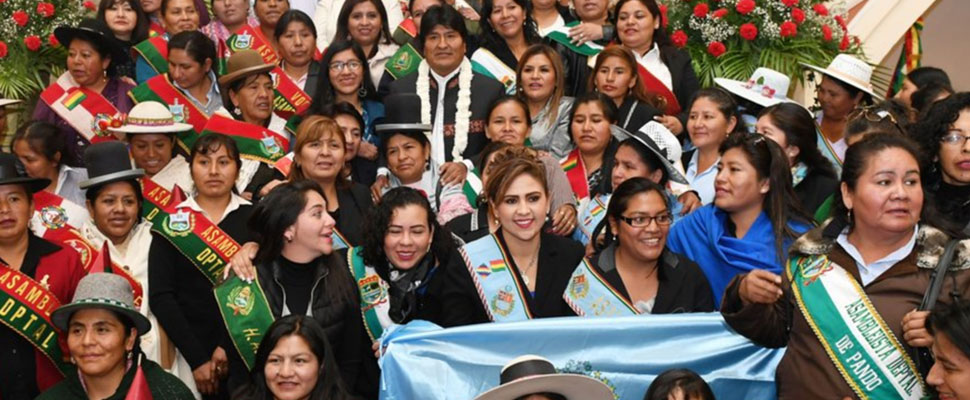Bolivia: Violence against women in politics does not diminish
Although the public positions held by women in Bolivia are increasingly increasing, political gender violence also increases
Bolivia is one of the countries with the most regulation on the political participation of women, allowing parity in the governmental functions of its different institutions.
Leer en español: Bolivia: La violencia hacia las mujeres en la política no disminuye
Since 1997, the Supreme Decree for equal opportunities for men and women, and in 2010, the Law of the Electoral Regime, have achieved that today the Plurinational Assembly is integrated by 79 women and 80 men. However, political gender violence seems to increase. Some human rights organizations say that the number of attacks is growing.
What cases have been presented?
Mary Carmen de la Cruz Mamani is a councilor in Achocalla, a municipality that is 15 km from La Paz. He has worked since 2011 and belongs to political groups related to President Evo Morales. In May, he denounced the mayor, Damaso Ninaja, for assaulting her verbally and physically.
Carmen, 38, from the Aymara community, said the laws that protect women in Bolivia are not working. She asserts that the attack was perpetrated because of the fiscal monitoring she has done to the mayor of Achocalla, who is presumed to have irregularities in the execution of works, says the newspaper La Razón.
Juana Quispe was murdered in March 2012. She was councilor-elect of the municipality of Ancoraimes and a strong opponent of the mayor of this territory, at that time. Today, in 2018, the alleged suspects, including former President Félix Huanca and councilors Pastor Cutili, Basilia Ramos and Exalta Arismendi, remain at large according to the Icees organization in Bolivia. In addition, it emphasizes that the leader, known for having donated her house to use it as a fort for meetings in her community, was violently persecuted for exercising fiscal control over the actions of the politicians of that time. Strangled and abandoned in a river, her femicide remains unresolved.
Mónica Paye, councilor of the municipality of Callapa, told Bolivian media that "in the countryside, they see it as a crime, for a woman to represent them." The counselor was arrested for the crime of embezzlement, which she did not commit, as determined by the 4th Criminal Chamber. On the other hand, the woman assures that behind this "a series of actions of violence and political harassment exercised by the mayor, Victor Honorio Calle, is systematically hidden".
The data
Different numbers of complaints about cases of political violence due to gender are estimated. While the Observatory of the Electoral Organ ensures that 60 complaints have been filed up to June (with an increase of 40% compared to the previous year), the Association of Councilors of Bolivia (ACOBOL) states that there are about 100 complaints in their records. Only 36 of them reach the Prosecutor's Office, with a 70% delay in the processes of justice, adding that, the cases that are not reported, can boast bizarre numbers.
The figures are not encouraging. Based on the tragic story of Juana Quispe, a law was created that protects women who participate in the country's politics. However, it is evident that its operation has been null.
Maybe you're interested: Being a journalist in Latin America is the most dangerous job
According to the United Nations, Bolivia is the second country in the world with the largest number of women in power, guaranteeing a democratic and equitable participation in front of men. In 2004, women in Bolivia only reached a municipal representation of 4%. Today, the percentage has risen to 50%. However, it is clear that the laws that protect women in the Andean country, in general, have not meant progress in the vindication of their rights.
The United Nations says that in Mexico the numbers are surprising, there are 19 murdered candidates and 120 aggressions in the last electoral period. In the same way, in Brazil, the assassination of Councilwoman Marielle Franco for political reasons has dismayed the world.
In Colombia, 40 women social leaders have been assassinated since 2016. In Peru, 80% of women who have political aspirations suffer from harassment; and four out of ten candidates are victims of violence.
The United Nations Organization states that if these crimes are not defined in a specific area, the problem will continue to grow and invites governments to begin with the management of various laws that protect women who participate in politics in Latin America.
Latin American Post I Jorge Becerra
Translated from: ' Bolivia: La violencia hacia las mujeres en la política no disminuye'






